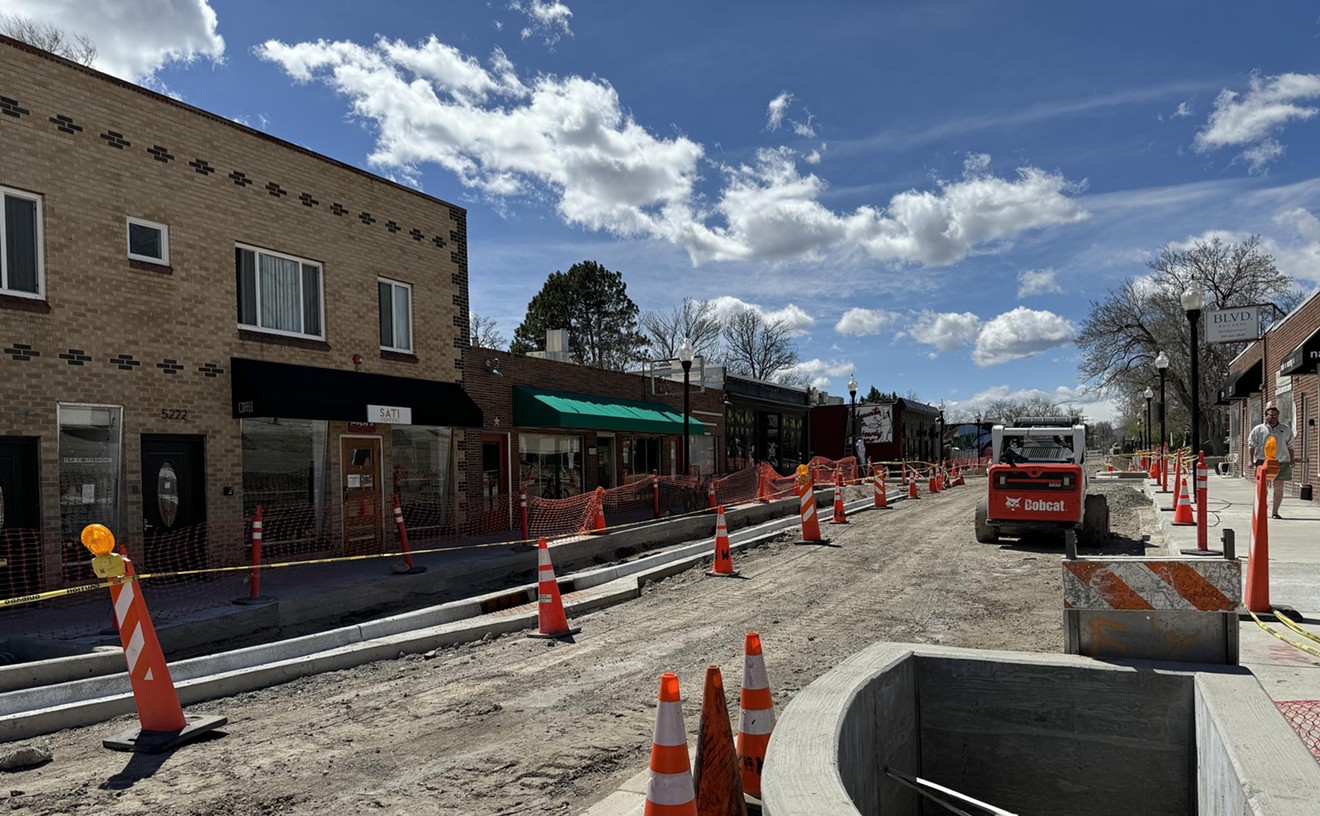The farmer and the restaurateurs forged an "automatic relationship," Bonin says.
"Elaine has an amazing commitment to farming," says Bonin. "And her farm is literally in our parking lot. There are a lot of benefits to that. When we're out of basil, we can go pick some more basil."
Bonin is quick to clarify, however, that no one in the restaurant actually does any of the farming -- Granata handles that on her own, and she sells her produce to not just Olivéa, but also Tables, Satchel's on 6th, Il Posto, SAME Cafe and Marczyk Fine Foods. And she consults with all of them to determine what they want before she plants.
"I don't grow anything I haven't already sold," Granata says. "But I've learned what chefs like -- I know their menus, I know their clientele and I know the kind of food they're making. So I approach my farms with an understanding of the industry and then I ask them if there's anything special that they want. And if I have room for it and it's possible, I'll grow it.
Olivéa, for instance, wanted a particular type of pepper. "She grew padron peppers just for us," says Bonin. "They're smaller than a green chile or anaheim pepper, not as hot as a jalapeño. They were for a traditional Spanish dish of padron peppers with sea salt."
Il Posto, says Granata, was interested in certain varieties of cabbage. And she'll sit down with restaurateurs from all of the restaurants she serves this fall to plan her crops for the coming year.
Granata first started farming on land near 104th and the Platte River in 2002. "It was something that came to me and I spent a year doing discernment, including researching, writing essays and volunteering," she explains. "It was one step at a time until the day I called a farmer and asked him to plow the land."
It wasn't the most natural jump; Granata had worked in consulting and strategic planning for years. But she says she has subconscious roots in working the land. "In some ways I'm finishing my mother's work," she says. "She grew up on a horse farm and hated it. It's finishing the work that she didn't enjoy and I do enjoy, because it's work I love and am drawn to. At this point in my life, I can't imagine wanting to do anything else."
In 2008, Granata left her country plot for a parcel of land at 17th Avenue and Clarkson Street that had previously held an old house, and borders the building that now houses Olivéa. Since then, she's worked several other sites in the city, and found she can grow just about anything she wants -- except corn, she says, because "the raccoons and the squirrels get most of that."
Picking a favorite crop, but she knows her least favorite: lettuce. "It's hard to grow and hard to package," she says. "I don't do lettuce well."
This year, Granata nabbed another plot at 25th and Arapahoe streets, and while her spring was dominated by planning that space, she'll be able to expand her offerings next year, growing things like sweet potatoes and okra, which are atypical urban farm crops. She's also bringing in a special French fruit tree called espalier. "It's a two-dimensional tree grown against a building or wall in shapes like a fan or a candelabra," she explains. "It's probably easiest to imagine a grape vine or vineyard for comparison. I'm doing three varieties of apples and three varieties of pears, and they're all heirloom varieties, some of which I've never heard of."
In addition to those fruit trees, she'll also try to tackle a fig tree next year, since she's hoping to increase her exotic crop offerings. And she says that at some point down the road, she may look for a long lease on a plot that will allow her to grow a large monocrop, like asparagus or hops.
For now, though, she's concentrating on making the restaurants happy and expanding her CSA, which currently services Park Hill, where she lives.
"I'll probably expand my CSA in the Curtis Park area with a pick-up there," she says. "I want to keep it so people don't have to get in their car and come get food. I want them to be able to ride their bikes or walk."
And Olivéa will continue to reap the benefits: Bonin says she gets about 10 percent of the produce on the restaurant's menu from Granata (the rest comes from other farms and weekly trips to the farmers' markets in town). Right now now on the fall menu, you can sample baby carrots, leeks, basil and eggplant from Granata Farms.
Read about restaurateurs with farms this harvest season:
- Marilyn Megenity at the Mercury Cafe
- Olav Peterson and Melissa Severson at Bittersweet
- Yasu and Toshi Kizaki at Sushi Den, Izakaya Den and Ototo Food and Wine
- Dan Landes at WaterCourse Foods and City O' City










